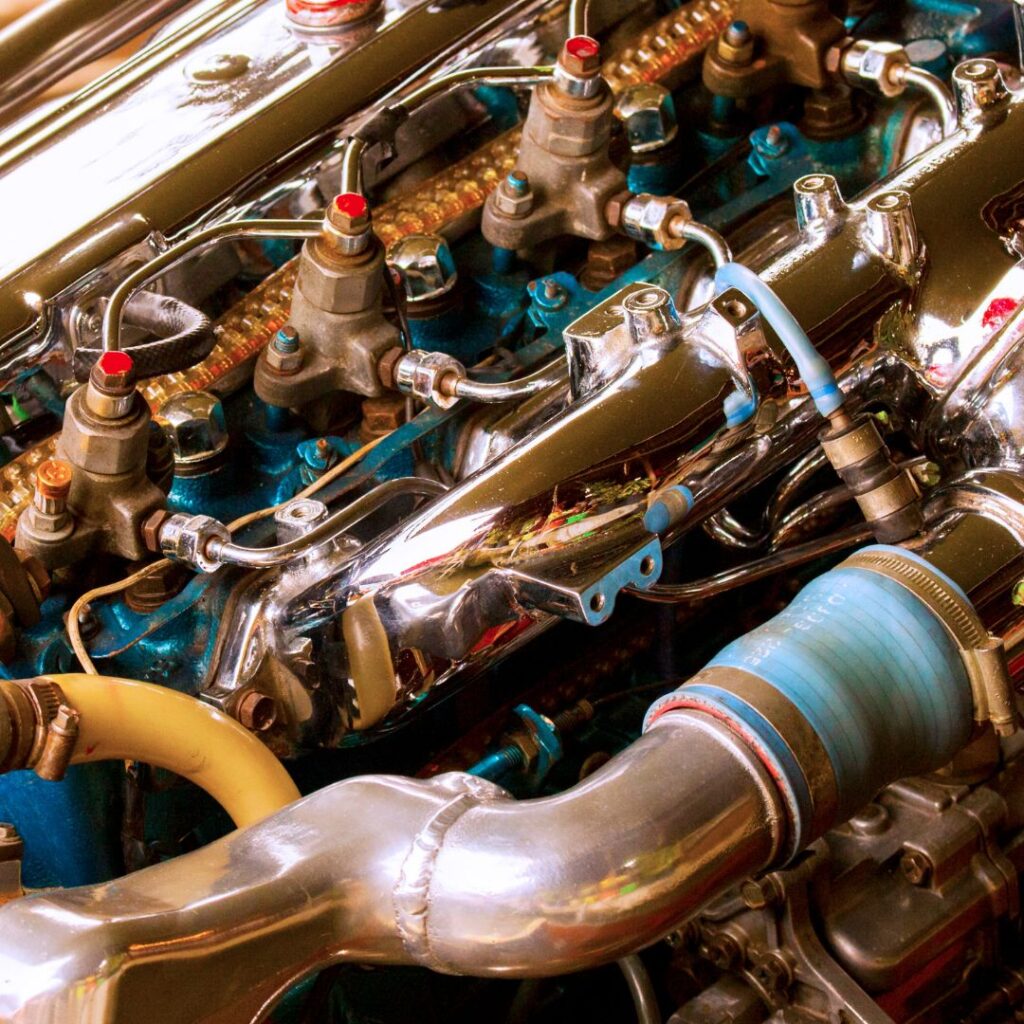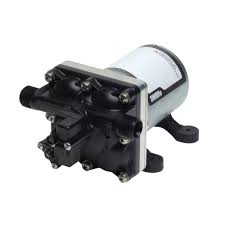8 Tips on Choosing the BEST Freshwater Pump For Your Boat

Boats, whether for recreational or commercial purposes, require a reliable water management system. Freshwater pumps play a crucial role in this system, ensuring the constant supply of potable water for various onboard needs. From drinking and cooking to cleaning and cooling, these pumps are the lifeblood of a boat’s water infrastructure.
Understanding how water pumps work and the different types available is essential when selecting the best freshwater pump for your boat. In this comprehensive guide, I will share 8 practical tips to help you choose the most suitable freshwater pump for your vessel.

8 Tips on Choosing the BEST Freshwater Pump For Your Boat
When it comes to selecting the right freshwater pump for your boat, there are several key factors to consider. Let’s dive into the details:
1. Determine your water needs.
The first step in choosing the best freshwater pump is to assess your boat’s water usage requirements. Think about the number of sinks, showers, and other appliances that will be connected to the water system. This will help you determine the necessary flow rate and pressure the pump needs to provide.
Consider the maximum simultaneous demand, as well as any future expansion plans for your boat’s water system. Choosing a pump with adequate capacity will ensure reliable water access and prevent issues like low water pressure or insufficient supply.
2. Select the appropriate pump type.
Freshwater pumps for boats come in various types, each with its own advantages and disadvantages. The most common options include:
- Centrifugal Pumps: These are the most widely used freshwater pumps in boats due to their high flow rates and moderate pressure capabilities. They are efficient, relatively affordable, and easy to maintain.
- Diaphragm Pumps: These positive displacement pumps are known for their ability to self-prime and handle water with debris. They provide a constant flow rate, making them suitable for applications like water pressure systems.
- Accumulator Tank Pumps: These systems combine a pump with an accumulator tank to maintain consistent water pressure throughout the boat’s plumbing. The tank helps regulate pressure and reduces pump cycling.
Carefully evaluate the specific needs of your boat and the intended applications to select the most appropriate pump type for you.
3. Consider pump capacity.
The capacity of a freshwater pump is typically measured in gallons per minute (GPM) or liters per minute (LPM). Choosing the right pump capacity is crucial to ensure adequate water supply and pressure.
To determine the ideal pump capacity, add up the maximum simultaneous water demands of all the fixtures and appliances in your boat’s water system. Then, select a pump with a capacity that exceeds this total demand by a comfortable margin, typically around 20-30% more. This will ensure the pump can handle peak usage without compromising water pressure or flow rate.
4. Evaluate pump pressure.
In addition to the flow rate, the pump’s pressure capability is another essential factor. The required pressure will depend on the boat’s water system design, including the height of the water tanks, the length and complexity of the plumbing, and the number of fixtures.
Most freshwater pumps for boats operate within a pressure range of 30-60 PSI (pounds per square inch). Ensure the pump you choose can maintain the necessary pressure throughout the entire water system, even during peak usage.
If the pump’s pressure is too low, you may experience issues like poor water flow or insufficient pressure at faucets and showers. Conversely, excessive pressure can lead to leaks and damage to the plumbing system.

5. Prioritize pump reliability and durability.
Boats operate in harsh marine environments, so the freshwater pump you choose must be reliable and durable enough to withstand the rigors of life on the water.
Look for pumps made with corrosion-resistant materials, such as stainless steel or marine-grade brass, to prevent premature wear and tear. Additionally, consider the pump’s overall construction quality, bearing design, and sealing mechanisms to ensure long-term performance.
Reputable marine pump manufacturers often offer extended warranties, which can provide peace of mind and protection against unexpected failures.
6. Evaluate energy efficiency.
The energy consumption of a freshwater pump can have a significant impact on your boat’s overall power usage and battery life. Opt for energy-efficient pump models that minimize power draw, particularly if your boat relies on limited onboard power sources like batteries or a generator.
Look for pumps with features like brushless motors, variable-speed operation, or automatic shut-off functions to optimize energy usage and reduce the strain on your electrical system.
7. Consider noise and vibration.
Boats can be relatively confined spaces, and the noise and vibration generated by a freshwater pump can be a nuisance for both the crew and passengers. Look for pumps designed with noise-dampening mechanisms, such as rubber mounts or insulated housings, to minimize operational noise and vibration.
This not only improves the overall onboard experience but also helps prevent premature wear and tear on the pump and surrounding components.
8. Ensure proper installation and maintenance.
Proper installation and regular maintenance are crucial for the long-term performance and reliability of your boat’s freshwater pump. Follow the manufacturer’s instructions carefully during installation, making sure to connect the plumbing correctly, wire the electrical components properly, and include any required accessories, such as pressure switches or accumulators.
Additionally, adhere to the recommended maintenance schedule, which may include tasks like cleaning filters, checking for leaks, and inspecting the pump’s internal components. Investing in proper care and maintenance can extend the lifespan of your freshwater pump and prevent unexpected breakdowns.

What Are The Best Freshwater Pumps For Boats?
Now that you know the key considerations for choosing the best freshwater pump for your boat, let’s explore some top-rated options:
Shurflo 4008-101-E65 freshwater Pump

The Shurflo 4008-101-E65 is a popular choice for boat owners thanks to its reliable performance and easy installation. This 12V diaphragm pump delivers a flow rate of up to 3.5 GPM and can maintain a pressure of 45 PSI. Its self-priming capabilities and corrosion-resistant construction make it a durable option for marine environments.
Jabsco 37202-0092 Water Pressure Pump
The Jabsco 37202-0092 is a compact and efficient centrifugal pump that provides a reliable water supply for boats. With a flow rate of up to 3.8 GPM and a maximum pressure of 55 PSI, this pump can handle the demands of most onboard water systems. Its thermoplastic and stainless steel construction ensures long-lasting performance.
Flojet R4426-143A Quad freshwater Pump
The Flojet R4426-143A is a versatile quad-style freshwater pump that features four individual diaphragm pumps for consistent water pressure. With a combined flow rate of up to 5.5 GPM and a pressure range of 20-60 PSI, this pump is well-suited for larger boats with more extensive water system requirements.
Rule 24DA freshwater Pressure Pump
The Rule 24DA is a compact and efficient diaphragm pump that delivers a flow rate of up to 3.8 GPM and a maximum pressure of 55 PSI. Its 24V DC motor and corrosion-resistant materials make it a durable choice for marine applications. This pump is a popular option for boats with higher water demand or long plumbing runs.
Attwood Sahara High-Pressure Water Pump
The Attwood Sahara High-Pressure Water Pump is designed to provide reliable and consistent water pressure for boats. With a flow rate of up to 5.3 GPM and a maximum pressure of 60 PSI, this pump can handle the needs of larger water systems. Its built-in pressure switch and thermal overload protection add to its overall reliability and safety.
When you know what to look for, choosing the right pump becomes easy.
Remember, when selecting the best freshwater pump for your boat, it’s essential to consider factors like pump type, capacity, pressure, reliability, energy efficiency, and noise/vibration levels. By carefully evaluating these criteria, you can choose a pump that will provide a dependable and hassle-free water management system for your vessel.
For more information on how to choose the best equipment for your boat, be sure to check out our previous post on how to choose a fishing kayak and Best Water Filters for Camping. Staying informed on the latest trends and best practices can help you make informed decisions and enhance your boating experience.
For more information on beneficial water therapies and all things around the benefits of water, stay tuned to my blog. I’m always available to give recommendations, reviews, and health information on all things water!
Stay hydrated,
Shashank Varma (Mr. Water Geek).

